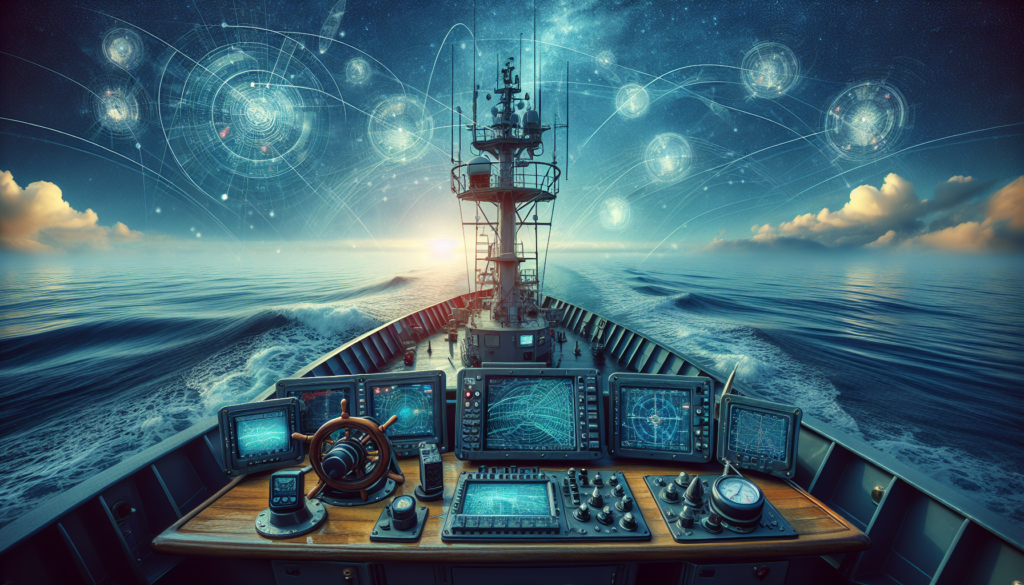Exploring the Depths of Marine Electronics: Navigating the High-Tech Seas
When we think of the vast expanse of the ocean, it is easy to be captivated by its beauty and mystery. However, beneath the surface lies a world of complex technology that plays a crucial role in ensuring the safety, efficiency, and success of maritime activities. Welcome to the realm of marine electronics, where cutting-edge technology meets the deep blue sea.
The Evolution of Marine Electronics
The history of marine electronics dates back to the early 20th century when the first rudimentary systems were developed to aid in navigation and communication at sea. Over the decades, advances in technology have revolutionized the way ships and boats operate, transforming them into highly sophisticated vessels equipped with a wide array of electronic devices.
From radar systems to GPS navigation, sonar equipment to satellite communication, marine electronics encompass a diverse range of tools and technologies designed to enhance safety, efficiency, and performance on the water. These systems have become indispensable for modern maritime operations, providing vital information to captains, crew members, and marine professionals around the world.
The Role of Marine Electronics
Marine electronics play a crucial role in a variety of maritime activities, including navigation, communication, safety, and environmental monitoring. These systems enable ships to navigate through treacherous waters, communicate with other vessels and shore-based facilities, and monitor weather conditions and sea levels in real time.
One of the key functions of marine electronics is navigation, which relies on GPS technology to determine a ship’s position, course, and speed. GPS systems use satellite signals to provide accurate and reliable positioning information, allowing captains to plot their course and avoid hazards such as reefs, rocks, and other vessels.
In addition to navigation, marine electronics also play a vital role in communication at sea. VHF radios, satellite phones, and other communication devices enable ships to stay in touch with each other, as well as with coast guard stations, port authorities, and other maritime services. These systems are essential for coordinating operations, requesting assistance in emergencies, and maintaining contact with the outside world.
Advancements in Marine Electronics
Over the years, marine electronics have undergone significant advancements, with new technologies constantly being developed to improve performance, reliability, and functionality. One of the most notable advancements in recent years has been the integration of digital technology into marine systems, allowing for greater automation, data processing, and connectivity.
For example, the advent of AIS (Automatic Identification System) technology has revolutionized vessel tracking and collision avoidance at sea. AIS transponders transmit information about a ship’s identity, position, course, and speed to other vessels and shore-based stations, enabling real-time monitoring and coordination of maritime traffic.
Similarly, the use of electronic charting systems has transformed the way ships navigate, replacing traditional paper charts with digital maps that provide detailed information about water depths, navigational hazards, and coastal features. These systems offer greater accuracy, flexibility, and convenience compared to traditional navigation methods, making them essential tools for modern seafarers.
Challenges and Controversies in Marine Electronics
Despite their many benefits, marine electronics also face a number of challenges and controversies that must be addressed to ensure their continued success and sustainability. One of the key issues facing the industry is cybersecurity, as maritime systems are increasingly vulnerable to cyber attacks that can compromise safety, security, and operational efficiency.
Another challenge is the impact of electronic waste on the marine environment, as outdated or damaged electronics can release harmful chemicals and toxins into the water, posing a threat to marine life and ecosystems. Proper disposal and recycling of electronic equipment are essential to minimize this risk and protect the health of the oceans.
The Future of Marine Electronics
Looking ahead, the future of marine electronics holds great promise for further innovation, advancement, and integration of technology into maritime operations. Emerging technologies such as artificial intelligence, machine learning, and IoT (Internet of Things) are expected to revolutionize the way ships are designed, operated, and maintained in the years to come.
For example, autonomous ships equipped with advanced sensors and AI algorithms are poised to transform the shipping industry by eliminating the need for human crews, reducing operating costs, and improving safety and efficiency. These vessels can navigate through complex waterways, avoid collisions, and optimize fuel consumption with minimal human intervention, paving the way for a new era of unmanned maritime transportation.
Expert Opinions on Marine Electronics
According to maritime industry experts, the rapid pace of technological innovation in marine electronics is reshaping the way ships and boats operate, opening up new opportunities for efficiency, sustainability, and safety at sea. Captains, navigators, and marine engineers are increasingly relying on electronic systems to enhance their decision-making, streamline their operations, and navigate through challenging environments with confidence.
Dr. Emily Wong, a marine electronics specialist, notes that the integration of digital technology into maritime systems has the potential to revolutionize the way ships are designed, built, and operated. She emphasizes the importance of investing in cutting-edge electronics to stay ahead of the curve and remain competitive in the global shipping industry.
Common Misconceptions about Marine Electronics
Despite their importance and prevalence in the maritime industry, marine electronics are often misunderstood or underestimated by the general public. One common misconception is that these systems are only used for navigation and communication, when in fact they play a much broader role in ensuring the safety, efficiency, and environmental sustainability of maritime activities.
Another misconception is that marine electronics are only relevant to large commercial vessels, such as cargo ships and cruise liners, when in reality they are used by a wide range of maritime operators, including fishing boats, pleasure craft, and research vessels. These systems are essential for all types of vessels to navigate safely, communicate effectively, and comply with international regulations.
FAQs about Marine Electronics
Q: What are the most common types of marine electronics used on ships and boats?
A: Some of the most common types of marine electronics include GPS navigation systems, radar equipment, VHF radios, AIS transponders, sonar devices, and electronic charting systems.
Q: How do marine electronics contribute to safety at sea?
A: Marine electronics enhance safety at sea by providing accurate navigation information, facilitating communication between vessels, monitoring weather conditions, and alerting crews to potential hazards or emergencies.
Q: What are the key trends shaping the future of marine electronics?
A: The key trends shaping the future of marine electronics include the integration of digital technology, the development of autonomous ships, the use of AI and machine learning, and the focus on sustainability and environmental protection.
To Wrap Things Up
In conclusion, marine electronics are a critical component of modern maritime operations, providing essential tools and technologies to enhance safety, efficiency, and performance at sea. From navigation to communication, from safety to environmental monitoring, these systems play a vital role in ensuring the success and sustainability of maritime activities around the world.
As technology continues to advance and evolve, the future of marine electronics holds great promise for further innovation and integration of cutting-edge technologies into maritime operations. By staying informed, adapting to new developments, and embracing the opportunities that technology offers, maritime professionals can navigate the high-tech seas with confidence and competence.
So the next time you gaze out at the vast expanse of the ocean, remember the intricate network of electronics that lies beneath the surface, guiding ships and boats through the waters with precision and purpose. The world of marine electronics may be hidden from view, but its impact on the maritime industry is unmistakable and indispensable.



